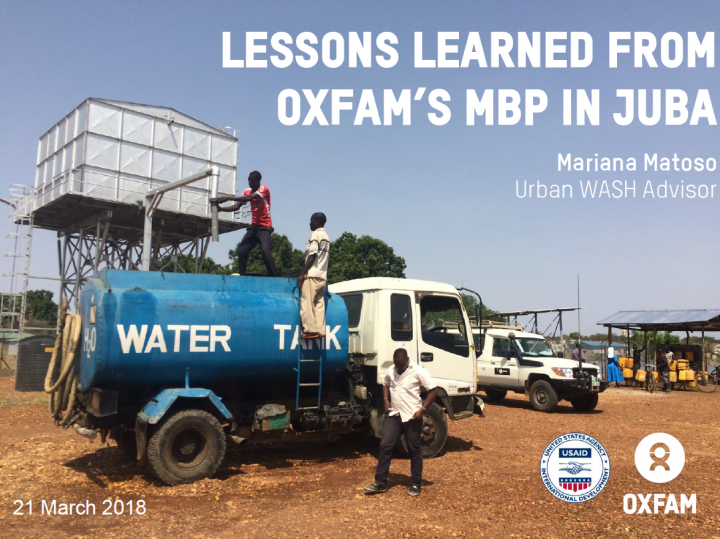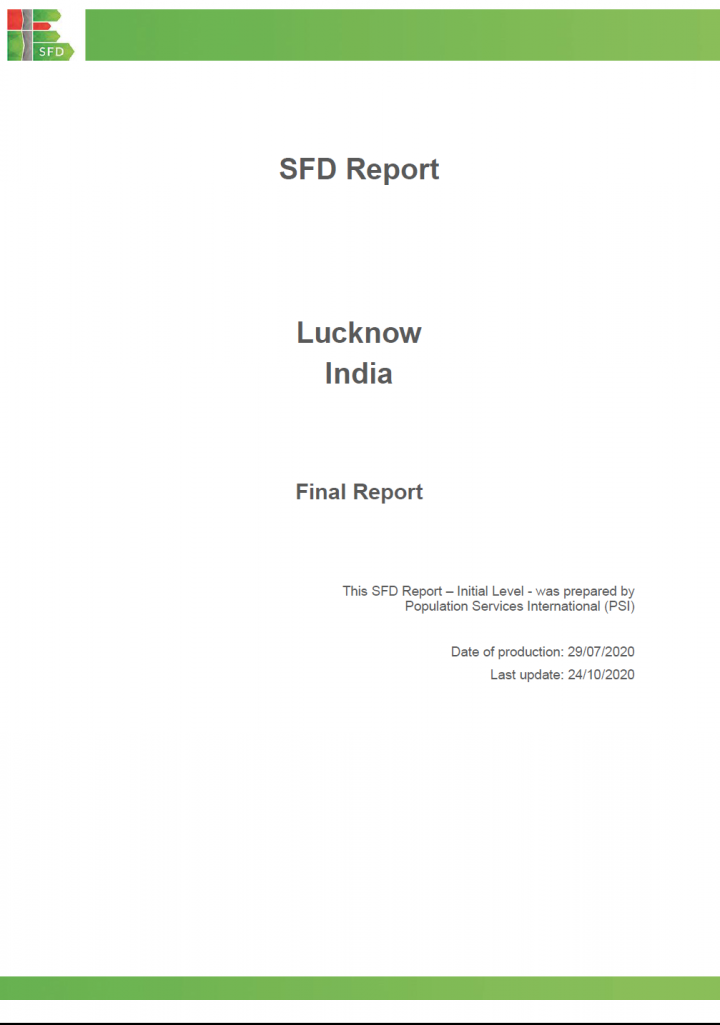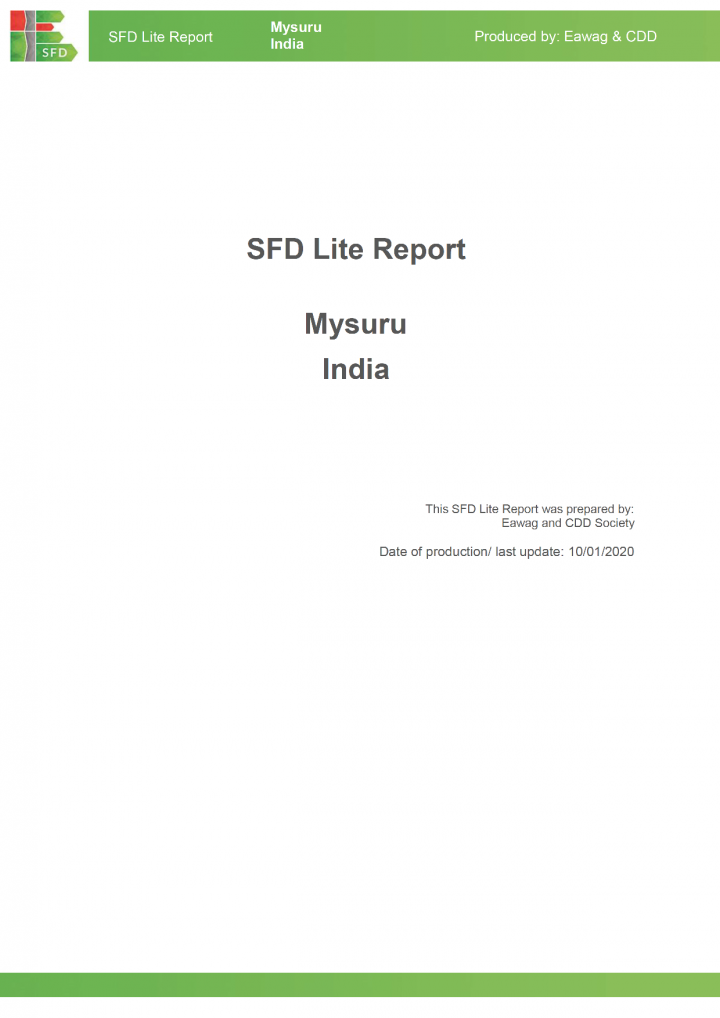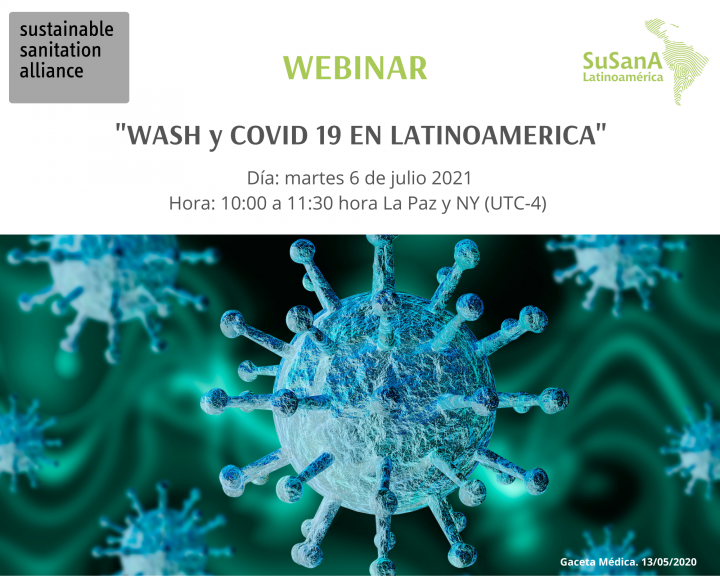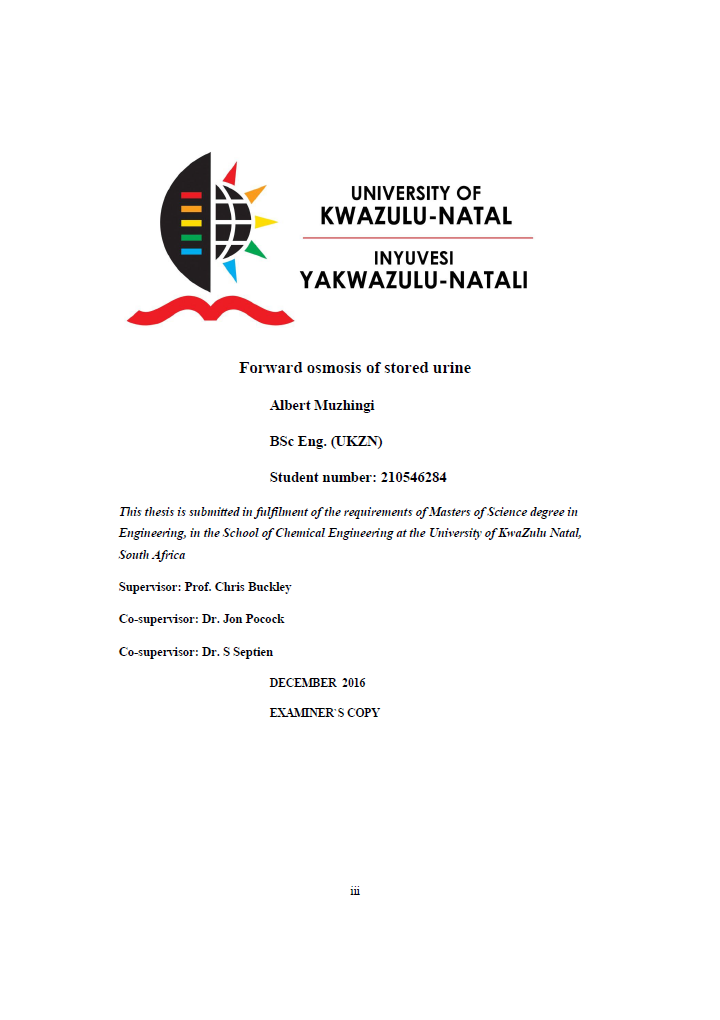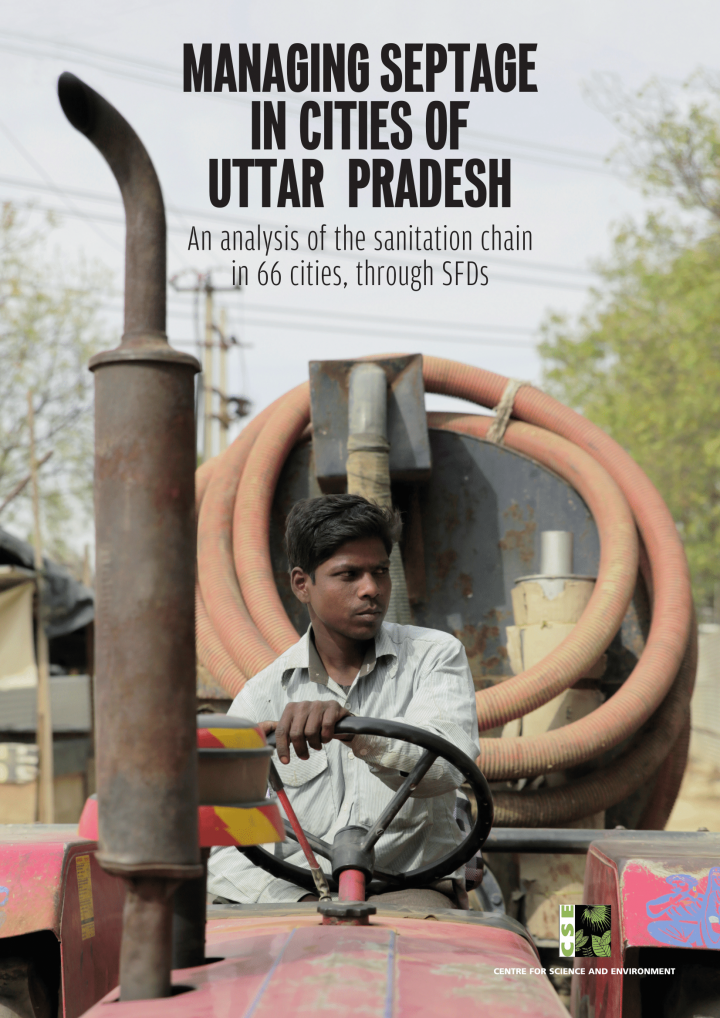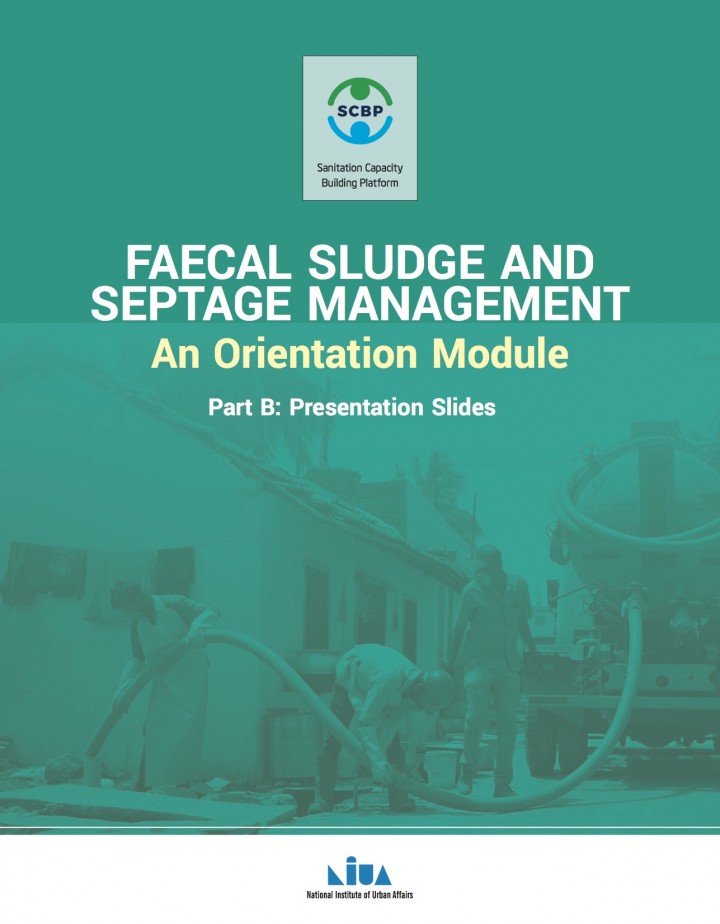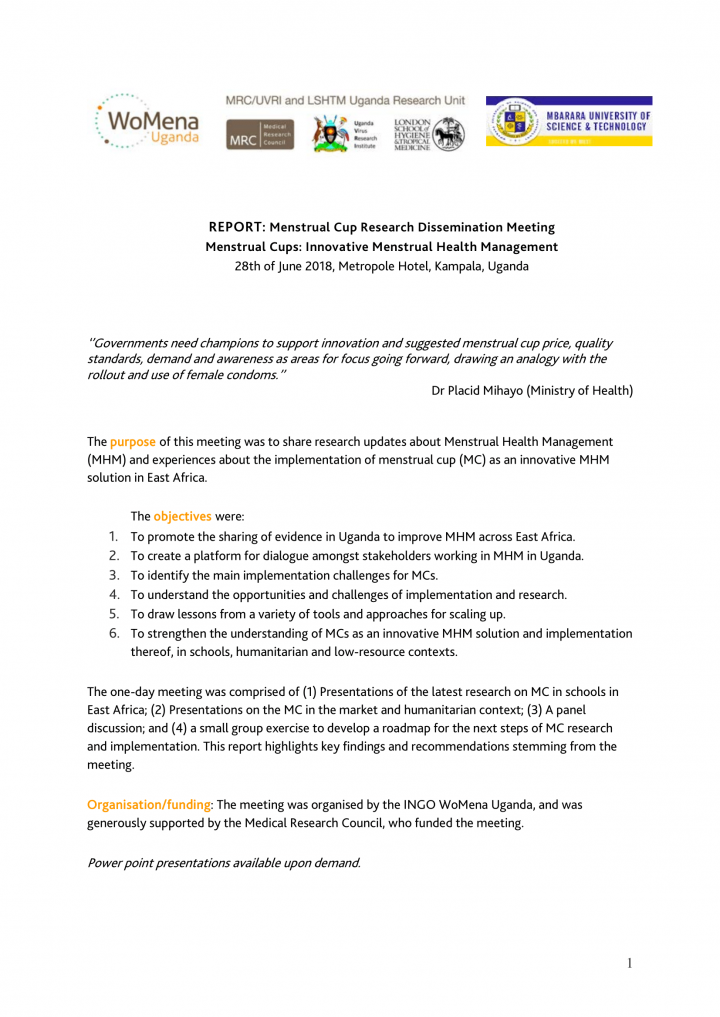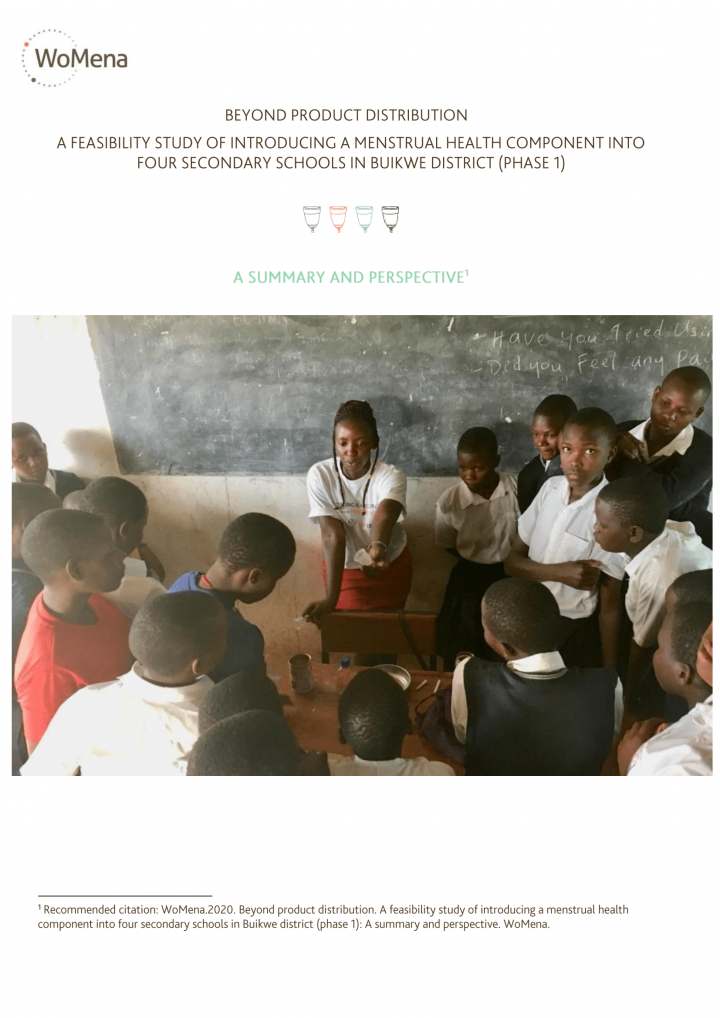Searching for information on Sanitation Workers?
The Sanitation Workers Knowledge + Learning Hub is the best source for all current news, trends, articles and updates on sanitation workers rights around the world.
This presentation summarises the lessons learnt by Oxfam's team working in Juba to support and develop the local market place to provide drinking water. The programme developed a voucher system that enabled households to access quality drinking water though supporting a community run, solar powered water treatment plant.
Lucknow is the capital city of the Indian state of Uttar Pradesh. Lucknow is also the tehsil and the district headquarters of the Lucknow district (TCPD, 2018). The urban local body governing the city is Lucknow Municipal Corporation (LMC)/Lucknow Nagar Nigam (LNN). Lucknow is a part of the Atal Mission for Rejuvenation and Urban Transformation (AMRUT) and the Smart city Mission of the Government …
This Technical Brief is concerned with the typical small dam (up to about three metres high) which is built across a stream to form a reservoir. It provides guidance on planning, design and construction, but professional help should always be sought before building any dam whose failure could endanger lives, property or the environment. Care must also be taken to avoid the health hazards of …
Dhangadhi Sub-Metropolitan City is located on Southern belt of Nepal in the Kailali District of Sudur Paschim Province, Nepal. The city is surrounded by Kailari Rural Municipality in the east, Mohana River in the west, Godawari and Gauriganga Municipality in the north and India in the South. It is divided into 19 wards. As per 2011 population census, Sub-Metropolitan City has a total of 147,741 …
Mysuru City is situated in southern part of the state at 770 m above sea level. According to the census 2011, the population of Mysuru was 893,062 and number of households (HH) were 209,650. Overall, the SFD Graphic depicts that 72% of excreta is safely managed while 28% is discharged untreated to the environment. Wastewater through sewer systems is generated by 92% of the total population of the …
En el inicio de COVID 19, la Sesión Stepping Stone - Capítulo de América Latina compartió ejemplos de soluciones y acciones durante la situación de pandemia sobre los siguientes temas.
1. Campaña Nicaragua Saludable y el Análisis de los retos de los CAPS para asegurar la sostenibilidad de los servicios de agua potable en el contexto de COVID 19
2. Covid-19 y las barreras al agua …
Kannur, also known by its English name Cannanore, is a city in Kannur district, state of Kerala, India. It is the administrative headquarters of the Kannur district and situated 518 km north of the state capital Thiruvananthapuram. Kannur is famous for its pristine beaches, Theyyam (its native performing art), and its handloom industry. Kannur Municipal Corporation (KMC) is the largest urban …
This manual is an outcome of (FAO/TCP/NEP/4451 -T) project being implemented with the Ministry of
Forest and Soil Conservation as the liaison institution. CMS developed this manual through six stages. To
start with, a team of four CMS professionals prepared a draft of this manual which was improved upon
based on the comments and suggestions from the national experts and practitioners. At this …
The technical performance and user acceptance of a novel on-site sanitation system based on vermifiltration was tested for over 12 months in rural India. Ten households (mean household size = 5.6 people) who had previously practised open defecation trialled a pour flush toilet linked to a vermifilter, together known as a ‘Tiger Toilet’. Technical parameters which were monitored over this …
In this research, three faecal sludge sanitizing methods—lactic acid fermentation, urea treatment and lime treatment—were studied for application in emergency situations. These methods were investigated by undertaking small scale field trials with pit latrine sludge in Blantyre, Malawi. Hydrated lime was able to reduce the E. coli count in the sludge to below the detectable limit within 1 h …
This document provides information on generic types of onsi te wastewater treatment and disposal systems. It contains neither standards for those systems nor rules and regulations pertaining to onsite systems. The design information presented herein is intended as technical guidance reflective of sound, professional practice. The intended audience for the manual includes those involved in the …
A sanitation snapshot of urban Uttar Pradesh, India clearly indicates that households with onsite sanitation systems like septic tanks (47 per cent) far exceed those with sewer connections (28 per cent), hence septage management in the state becomes an integral part of sustainable sanitation. According to the State Annual Action Plan 2017, most cities have reported more than 80 per cent coverage …
Women face greater challenges than men in accessing water, sanitation, and hygiene (WASH) resources to address their daily needs, and may respond to these challenges by adopting unsafe practices that increase the risk of reproductive tract infections (RTIs). WASH practices may change as women transition through socially-defined life stage experiences, like marriage and pregnancy. Thus, the …
The video is a documentary about the Community Led Total Sanitation (CLTS) approach, an innovative methodology for mobilising communities to completely eliminate open defecation and take their own action to become open defecation free. It shows projects in Bangladesh and interviews with one of its pioneers Dr. Kamal Kar.
It has been produced 2008 within the BBC earth report series on …
About the Training Modules
Training Modules on decentralsid sanitation, septage and waste water have been developed, tested and delivered by SCBP during 2016-17, during training of government officials from UP, Rajasthan, MP, Telengana, Bihar, Karnataka, West Bengal, Jharkhand and Chattisgarh. These Modules have also been used in Training of Trainers(ToTs) of Amrut Nodal Agencies, Academia, …
The purpose of this document is to explain the intent and requirements of the Part 503 rule and to assist owner/operators in determining the extent to which their biosolids management operation is covered. To help clarify the intent of the Part 503 rule! this guidance document sometimes uses terms that do not appear in the rule itself and organizes information differently from the rule. For …
Women and girls are especially affected by inadequate sanitation because of gender related differences - cultural and social factors - but also because of sex-related differences - physiological factors. Gender refers to the social differences and relations between men and women which are learned and often constructed and which differ in various societies and can change over time.
There are …
The purpose of this meeting was to share research updates about Menstrual Health Management
(MHM) and experiences about the implementation of the menstrual cup (MC) as an innovative MHM
solution in East Africa.
The objectives were:
1. To promote the sharing of evidence in Uganda to improve MHM across East Africa.
2. To create a platform for dialogue amongst stakeholders working in MHM in …
The Institute for Fiscal Studies, in collaboration with WASTE, organized the conference “Beyond Development Aid: Sanitation Financing & Revenue Models in Reuse (human) Waste” in The Hague, Netherlands, the 15th of May 2017.
This conference brought together from different parts of the world; academics, practicioners and policymakers with the aim to generate knowledge regarding sanitation …
The present article presents an integrative theoretical framework to explain and to predict psychological changes achieved by different modes of treatment. This theory states that psychological procedures, whatever their form, alter the level and strength of self-efficacy. It is hypothesized that expectations of personal efficacy determine whether coping behavior will be initiated, how much …
Many low-income communities in developing countries consider stormwater dra inage to be their most urgent need as far as urban infrastructure is concerned. This is partly because their houses are often built on unsuitable land. In areas sufficiently close to the city centre for the journey to work to be affordable, land prices tend to be beyond their means. The only land they can afford, or on …
EXECUTIVE SUMMARY
In Sub-Saharan Africa (SSA), menstrual health is often considered a taboo and many girls and women lack access to safe and appropriate menstrual health management (MHM) products. This can have far-reaching implications for women and girls’ physical, social and mental wellbeing, as well as for their sexual reproductive health and rights. These MHM issues are often further …

